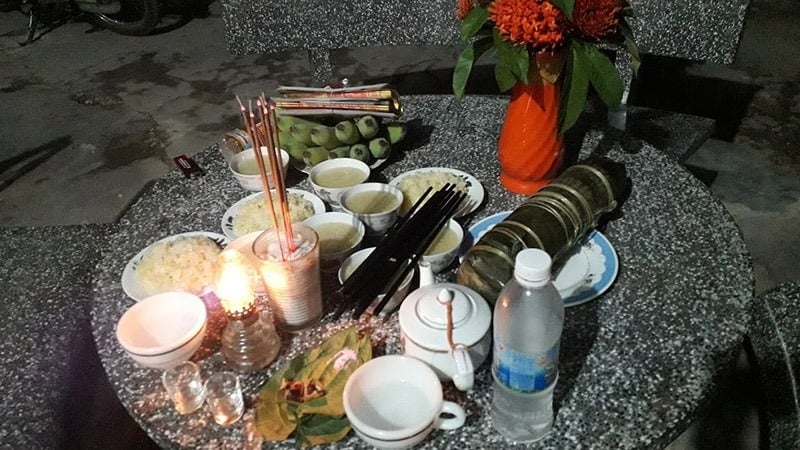Rice and Salt: A Sacred Ritual in Vietnamese Feng Shui and Spiritual Culture
In Vietnamese feng shui and spiritual culture, rice and salt hold a deeper significance beyond their role as cooking ingredients. They are believed to attract wealth and peace, playing an essential role in spiritual rituals.
This article delves into the meaning, timing, and proper way of performing a rice and salt offering, providing a comprehensive guide to this traditional practice.

When to Offer Rice and Salt?
The Significance of Rice and Salt in Feng Shui
Rice
Rice symbolizes abundance, prosperity, and growth. Across many cultures, rice is considered a staple food and a gift from nature. Offering rice expresses gratitude to the gods and nature for a bountiful harvest.
Salt
Salt represents purity and protection against evil spirits. In feng shui, salt is believed to absorb negative energy and bring peace to the household. By offering salt, homeowners express their wish to safeguard their family from misfortune.
Timing the Rice and Salt Offering
1. Full Moon and New Moon Days
The Full Moon and New Moon days are considered sacred in Vietnamese tradition. These are opportune times to present rice and salt offerings, seeking peace and prosperity for the coming month.
2. Festival Holidays
Rice and salt offerings are integral to festival celebrations, especially during Tet, the Vietnamese New Year. Homeowners offer rice and salt to invite wealth in the coming year while praying for the health and well-being of their family.
3. House Moving
When moving into a new home, offering rice and salt is a crucial ritual. This practice helps establish a positive relationship with the new space, attracting good fortune and dispelling bad luck.
4. Major Life Events
Significant events such as construction projects, shop openings, or wedding ceremonies are considered auspicious occasions for rice and salt offerings. These offerings symbolize a prayer for success and happiness during these momentous occasions.
Performing the Rice and Salt Ritual
Preparations
- Rice: Opt for white, fresh rice, symbolizing purity.
- Salt: Use large-grained, clean salt, preferably sea salt, to represent natural purity.
Prayer
Homeowners can compose their own prayers or refer to traditional ones. The prayer should convey reverence and wishes for wealth, health, and peace for the family.
Altar Arrangement
- Place the rice and salt in small, clean bowls alongside other offerings such as fruits, water, incense, and candles.
- Ensure the altar is tidy, clean, and fragrant.

After the ceremony, the officiant will scatter the rice and salt in front of the outdoor altar or in the new home’s courtyard.
Ritual Execution
- Light incense and recite the prepared prayer.
- After the ceremony, the rice and salt can remain on the altar for a specified period (typically 1 to 3 days) before being removed.
The rice and salt offering transcends cultural tradition; it is an expression of reverence, gratitude, and a prayer for prosperity and peace. Understanding the timing and ritual execution empowers homeowners to create a positive living space, attracting abundance and warding off negativity. May this guide help you maintain a harmonious home and prosperous endeavors.





































